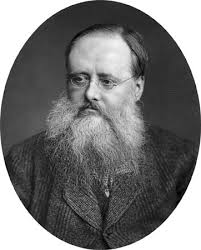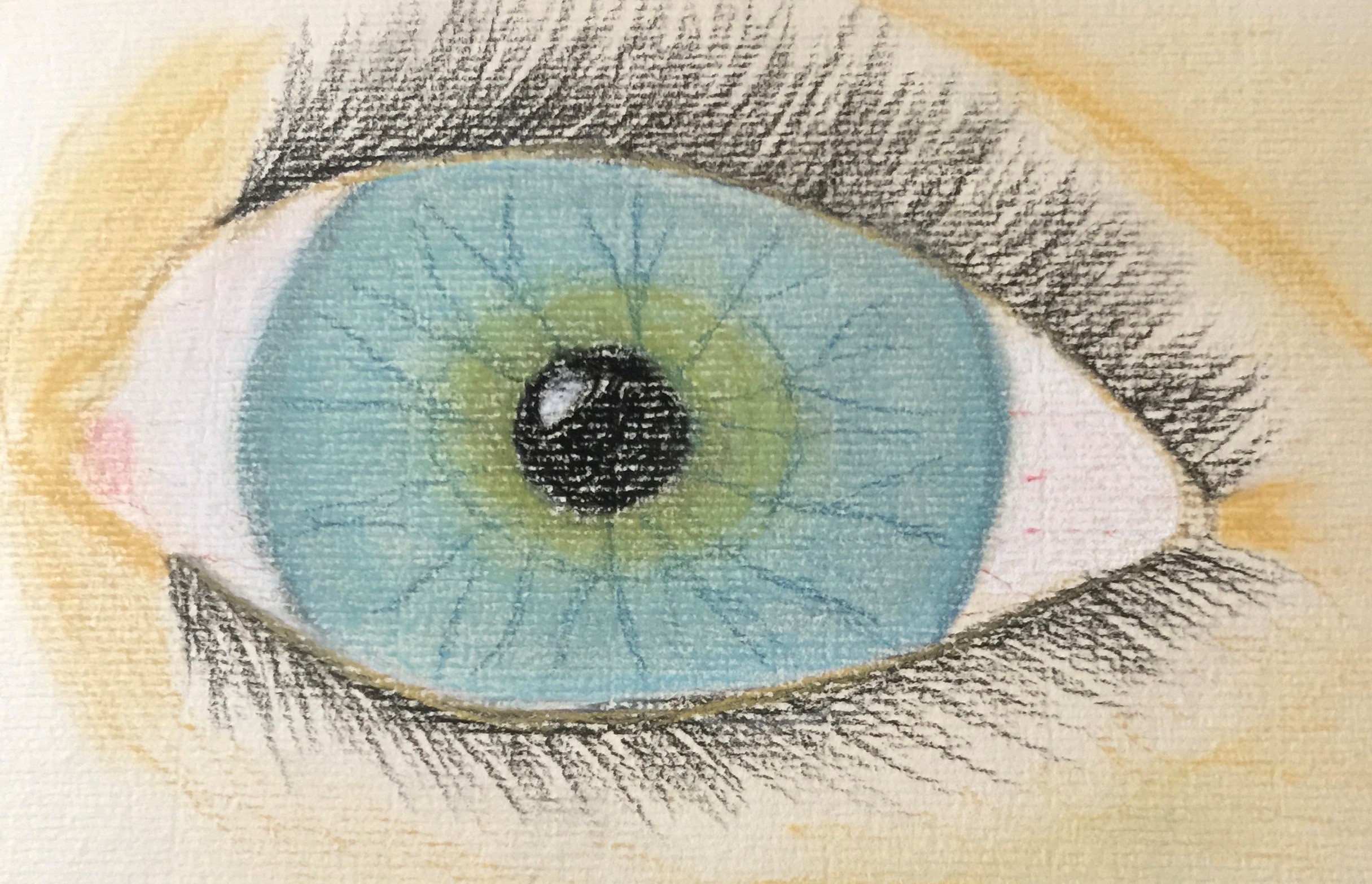I’m a little bit late in getting this post published, as I wanted to publish it in May, I hope you enjoy it.
I guess Wilkie Collins may be not be classed as someones favourite Author these days, especially since he passed away 89 years before I was born. OK so I may have given away my age, but he is one of my favourite authors for a few reasons.
- He’s a British author (as most of my favourite authors are American)
- He was good friends with Charles Dickens (who I always think lived far earlier than he actually did)
- He is considered to be the first to have written a detective novel
- My favourite Wilkie Collins book is The Moonstone
OK so that’s really not a lot of reasons, but when I started looking into his life he definitely had a very interesting one.

Basic Facts:
- Born: 8 January 1824
- Named: William Wilkie Collins
- Died: 23 September 1889
- Writing Period: 1840’s – 1880’s
- Children: 3
- Never Married
Working Career Before Writing:
Wilkie’s father William Collins always intended for his son to become a clergyman and was disappointed in his son’s lack of interest.
Wilkie apprenticed as a clerk for a Tea Merchants Antrobus & Co which was owned by a friend of Wilkie’s father. He disliked being a clerk but carried on working for the company for 5 years. During this time he wrote his first novel.
In 1846 Wilkie entered Lincoln’s Inn (it sound more like a public house than a place of study) to study law on the initiative of his father, who wanted him to have a steady income. Wilkie only showed a slight interest of law and spent most of his time with his friends and writing his second novel.
However he did complete his legal studies and was called to the bar in 1851. He never formally practised but did use his legal knowledge in many of his novel’s.
Personal Life:
Wilkie was never married as he was critical of the “Institution of Marriage”. However in 1858 he moved in with Caroline Graves, who owned a small shop near to where Wilkie lived. Caroline was widowed having married at a young age and having a daughter Harriet, who he treated as his own daughter. Caroline always wanted to marry Wilkie but they never did, she did however marry a much younger man called Joseph Clow, but returned to Wilkie after a couple of years.
In 1868 Wilike met Martha Rudd and they began a liaison. Martha was only 19 years old and she moved to London to be nearer to him a few years after meeting. Wilkie had 3 children with Martha. Marian was born in 1869, Harriet Constance their 2nd daughter was born in 1871, and their son William Charles was born in 1874. When Wilkie spent his time with Martha and their children he went by the name William Dawson and Martha and their children also went by the surname Dawson.
For the last 20 years of his life Wilkie divided his time living between Caroline who lived in his home at Gloucester Place and Martha who lived near by.
Health:
In early 1853 Wilkie suffered what was probably his first attack of gout, which ended up plaguing him for the rest of his life. Which lead him to taking Laudanum on a regular basis and finally becoming an Opium addict which eventually affected his writing and his health.
In 1870 his friend Charles Dickens passed away also causing Wilkie great sadness, he was quoted as saying: “We saw each other every day, and were as fond of each other as men could be”.
Works:
In the 1860’s Wilkie published his best and most enduring novels of his career. These four novels being: The Woman in White, No Name, Armandale, & The Moonstone. This showed people that he was not just a master of his craft but also an innovator and provocateur. They sold in large numbers which gained him an international reputation and ensured his financial stability, which allowed him to support many others.
- Iolani, or Tahiti as it was. A Romance (written 1844; published 1999)
- Memoirs of the Life of William Collins, Esq., R.A. (1848)
- Antonina (1850)
- Rambles Beyond Railways, or, Notes in Cornwall taken a-foot (with illustrations by Henry C. Brandling; 1851)
- Basil (1852)
- Mr Wray’s Cash Box. Or, the Mask and the Mystery. A Christmas sketch (1852)
- “A Terribly Strange Bed” (1852)
- “Gabriel’s Marriage” (1853)
- Hide and Seek (1854)
- “The Ostler” (1855)
- After Dark (1856)
- “The Lady of Glenwith Grange” (1856)
- The Dead Secret (1856)
- A Rogue’s Life (1856/1879)
- The Frozen Deep (1857), a play co-written with Charles Dickens
- “A House to Let” (1858), a short story co-written with Charles Dickens, Elizabeth Gaskell and Adelaide Anne Procter
- “The Haunted House” a short story co-written with Charles Dickens, Elizabeth Gaskell, Adelaide Anne Proctor, George Sala and Hesba Stretton
- The Queen of Hearts (1859)
- The Woman in White (1860)
- No Name (1862)
- My Miscellanies (1863)
- Armadale (1866)
- No Thoroughfare (1867), a story and play co-written with Charles Dickens
- The Moonstone (1868)
- Man and Wife (1870)
- Poor Miss Finch (1872) dedicated to Frances Minto Elliot
- Miss or Mrs? (1873)
- The New Magdalen (1873)
- The Frozen Deep and Other Stories (1874)
- “The Frozen Deep”
- “The Dream Woman”
- “John Jago’s Ghost; or The Dead Alive“
- The Law and the Lady (1875)
- The Two Destinies (1876)
- The Haunted Hotel (1878)
- The Fallen Leaves (1879)
- My Lady’s Money (1879)
- Jezebel’s Daughter (serialisation 1879–80; 3 vols 1880),novelisation of Collins’ play The Red Vial (1858)
- “Who Killed Zebedee?” (1881)
- The Black Robe (1881)
- Heart and Science (1883)
- I Say No (1884)
- The Ghost’s Touch and Other Stories (1885)
- The Evil Genius (1886)
- The Guilty River (1886)
- Little Novels (1887)The Legacy of Cain (1889)
- Blind Love (1890 – unfinished, completed by Walter Besant)
Films Based on His Novels:
- Basil (UK 1998)
- The Woman in White (UK 1997)
- Zhenshchina v belom (The Woman In White, Russia 1982)
- The Moonstone (UK 1996)
- The Woman in White (UK, TV, 5 episodes, 1982)
- La donna in bianco (Italy, TV, 1980)
- Lucilla (Poor Miss Finch, Germany, 1979, 2 episodes, directed by Wilhelm Semmelroth)
- Der Monddiamant (The Moonstone, Germany 1974, 2 episodes, directed by Wilhelm Semmelroth)
- Great Mysteries (1 Episode: A Terribly Strange Bed, USA 1973)
- Der rote Schal (Armadale, 3 episodes, directed by Wilhelm Semmelroth)
- La pietra di luna (The Moonstone, Italy 1972)
- The Moonstone (UK, 5 episodes, 1972)
- Die Frau in Weiß (The Woman in White, 3 episodes, Germany 1971, directed by Wilhelm Semmelroth)
- The Policeman and the Cook (USA 1970)
- La femme en blanc (The Woman in White, France 1970)
- La dama vestida de blanco (The Woman in White, Spain 1967)
- The Woman in White (UK, 6 episodes, 1966)
- A Terribly Strange Bed (USA 1991)
- Dow Hour of Great Mysteries: The Woman in White (USA 1960)
- The Moonstone (UK, 7 episodes, 1959)
- Hour of Mystery: The Woman in White (UK 1957)
- Sergeant Cuff kann den Mondstein nicht finden (The Moonstone, Germany 1955)
- Suspense: The Moonstone (USA 1954)
- Tales Of Adventure: The Moonstone (USA 1952, 5 episodes)
- Robert Montgomery Presents: The Moonstone (USA 1952)
- Kvinna i vitt (The Woman in White, Sweden 1949)
- The Woman in White (USA 1948)
- Crimes at the Dark House (based on The Woman in White, USA 1940)
- The Moonstone (1934)
- The Woman in White (1929)
- She Loves and Lies (1920)
- The Twin Pawns (1919)
- The Woman in White (1917)
- Tangled Lives (1917)
- The Moonstone (1915)
- The Quest of the Sacred Jewel (1914)
- The New Magdalen (1914
- The Dream Woman (1914)
- The New Magdalen (1912)
- The Woman in White (1912)
- The New Magdalene (1910)
Websites of Interest:
- The Wilkie Collins Pages
- Wilkie Collins Information
- Wilkie Collins Grave
- Wilkie Collins GoodReads
- Wilkie Collins Encyclopedia Britannica
- Works of Wilkie Collins by Project Gutenberg
- Portraits of Wilkie Collins at the National Portrait Gallery London
*** I’ve really enjoyed taking a closer look at Wilkie Collins Life, Health & Works and I you also enjoy reading what I have found out. ***
Please feel free to comment...

